Books of 2016
I’ve already posted lists for my favourite games and albums released in 2016. I don’t keep up with new book releases well enough to do a list of my favourite books released in the past year, but I do read about as many books as games I play or albums I listen to each year, so I like to do a year end round-up of what I’ve been reading around the same time I do my game and record lists.
For the previous couple of years I’ve done mini-reviews of every book I read, but it feels kind of tedious to write a few dozen reviews, and anyway I doubt more than a few people bother to read them all anyway. So this year I’ve decided just to list the 10 most compelling things I read in 2016, with no distinction between fiction and non-fiction. I hope you can find something you’ll enjoy. (The list is arranged alphabetically.)
Breaking the Maya Code by Michael D. Coe

I went on a big kick this year learning about the history of deciphering lost languages. This is the first book that I read on the subject. It differs from a lot of other books about decipherments in that Coe was one of the archaeologists involved in the effort, and he’s still alive, so he’s able to provide both expert knowledge and a first-person look at the process. The Mayan hierglyphs are fascinating because they look essentially like pictures, and so for a long time people thought they were merely symbols for whole words. It turns out that they’re actually phonetic (as is virtually every written language). Breaking the Maya Code serves as both a history of the decipherment as well as a fairly technical description of how the language was decoded, which made it thoroughly interesting to me as someone who is captivated by both language and history. There’s also an interesting Cold War angle to this, as the linguist who first proved that the symbols were phonetic was Russian, and many American & European scholars refused to believe that he was correct because they would not accept that intellectual breakthroughs could come from a communist country.
The Code Book by Simon Singh
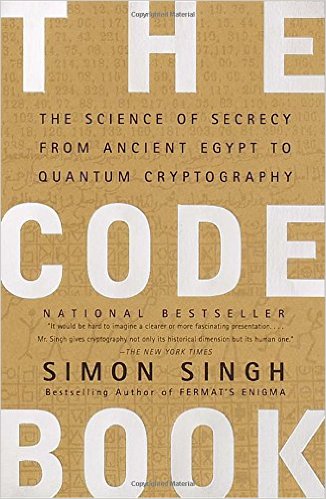
After I’d gone through all the interesting-looking books I could find about deciphering lost languages, I thought the next logical thing to learn about was the history of code-breaking. Superficially it would seem like the two subjects should have a lot in common, but it turns out that they don’t, because code-breaking involves translating something into an already known language, whereas script decipherment does not. Anyway, this was the best book I read about code-breaking. It also serves as both a history and as a technical guide to various codes and how they’ve been broken throughout history. Singh is a talented writer, and I found the book quite enjoyable to read, though I must confess that the more it moved into modern computer-based cryptography, the harder it was for me to follow. Still, the book has lots of interesting stories and also contains examples for the reader to try their own hand at the techniques discussed.
Decade of the Wolf by Douglas Smith
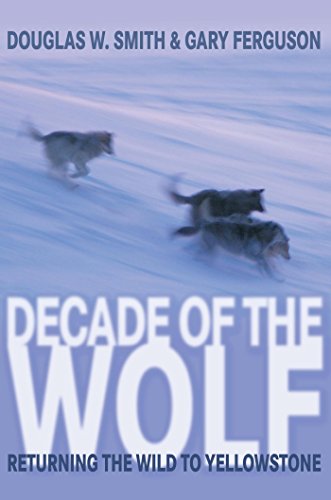
In 2015 I read Beyond Words: What Animals Think and Feel and it’s one of the most interesting books I ever read. It’s about how many non-human animals are highly social and intelligent, and how we ought to treat animals as individuals with personalities, not as indistinguishable automatons. One of the animals that gets a deep examination in that book are wolves, and in particular the wolves in Yellowstone National Park. Wolves were wiped out in much of the United States in the early 1900s, but starting in the 1990s there was an effort to reintroduce them to Yellowstone by capturing wolves in Canada and bringing them south. The program has been a remarkable success, and has had far-reaching and unexpected effects on the ecology of the region. Douglas Smith was one of the lead researchers helping to run the program, and this book is his chronicle of how wolves were reintroduced and what has happened in the years since.
The Informant by Kurt Eichenwald
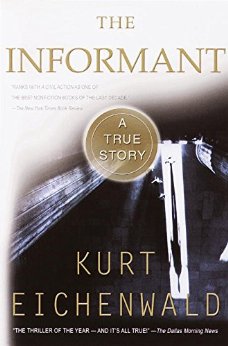
Many people probably know of Eichenwald now because of his bizarre antics on Twitter during last year’s presidential election campaign, but back when I read The Informant it was the first I’d heard of him. If you’re into real life mysteries and heists this book is easy to recommend. It’s the story of how Mark Whitacre, an executive at one of the largest agricultural firms in the United States, worked as an FBI informant to help prove the existence of a massive international price-fixing scheme in the market for lysine, an additive to animal feed. That part of the story is interesting enough, but there are so many bizarre turns involving Whitacre’s character and actions that it’s hard to even know where to start. There are anonymous threatening phone calls and Nigerian e-mail scams, there’s one person who appears to be trying to act out a John Grisham novel in real life, and there are seemingly unbelievable internecine battles between and within the Justice Department and FBI over how to handle the case. This is a book I raced through because the details were just so incredible, and yet it’s all true, as chronicled in the evidence of the various criminal cases that came about as a result of Whitacre’s informing.
On The Map by Simon Garfield
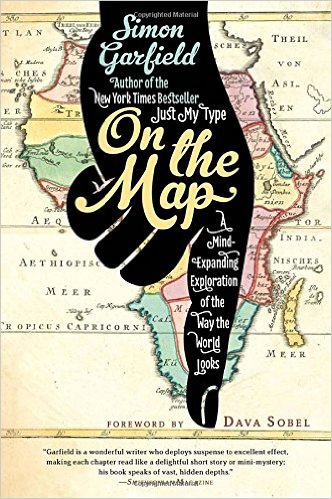
A kind of popular history of map-making, including maps both real and fictional. Each chapter deals with a different aspect of cartographic history. But it’s not merely an explanation of how maps were drawn, it’s also an exploration of the culture and the ideas that combine to form the way that people in a given place and time view their own environment, both locally and globally. It’s also look at how maps have shaped other aspects of human life, from medicine to leisure, as well as how maps have changed our brains and the ways we understand the world. An entertaining look at a subject that’s mattered a great deal throughout human history.
The Riddle of the Labyrinth by Margalit Fox
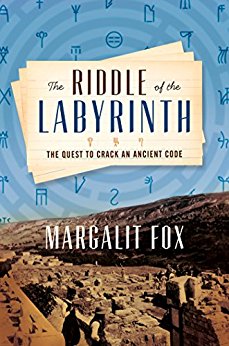
Another of the more interesting books I read about lost language decipherments. There are three major decipherments in modern-ish history: Egyptian hieroglyps, Mayan hieroglyps, and an old Greek script known as Linear B. The Riddle of the Labyrinth serves as a history of the decipherment, primarily as told between the two people who did the bulk of the work: an American university professor named Alice Kober and, bizarrely, a British architect named Michael Ventris. While Ventris has long been credited with the decipherment, Kober actually did most of the heavy lifting, and this book is Fox’s attempt to give Kober the credit she’s long been denied. Fox, a journalist for the New York Times, has a Masters degree in linguistics, and so she’s able to delve into the details of the decipherment in a way that I found quite engaging. Quite an interesting story, and I love the combination of linguistics and detective work.
Saga by Brian K. Vaughan

Last year I decided that I wanted to try to get into comics and graphic novels. I’m not really sure why other than I like to learn about stuff I don’t really know about. I wasn’t enormously successful, since I don’t really have any interest in superheroes and that’s what most comics are about, but I did find a few things that were worth sticking with, and one was Saga. I’m reading the collected volumes that come out every 6 issues rather than reading it monthly, and for the most part I’ve really enjoyed it. Brian K. Vaughan is a much better writer than just about anyone else I’ve come across in comics. He writes characters that are believable, and he’s great at dialogue and pacing. Saga is the story of a couple from two warring planets who have a daughter, and mostly it’s about their attempt to raise a well-adjusted child while they’re on the run across the galaxy from all manner of threats. I do feel like the more recent volumes are losing a bit of steam, but it’s still one of the better stories I’ve read lately, and the characters are great. The art is also fantastic.
Scarcity by Sendhil Mullainathan and Eldar Shafir
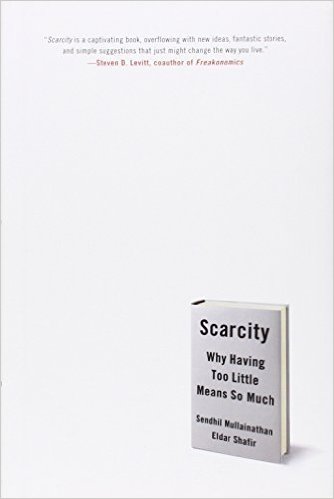
The authors of this book have picked three kinds of scarcity to focus on: scarcity of money, of time, and of food (in particular, people who are on diets). According to the authors, scientific evidence suggests that the brain reacts to “scarcity” in similar ways regardless of the particular type of scarcity, so there are interesting parallels between people who don’t have enough money and people who don’t have enough time (even if they do have enough money). A lot of the book focuses on something they call “tunnelling”, which is that when you’re dealing with scarcity, the brain locks in on the thing you don’t have enough of, preventing you from thinking about other problems, which causes people to make what seem like bad decisions (for example, taking on debt they ought to know they can’t afford, or commitments they ought to know they can’t fit into a packed schedule). The upshot of this is that the only way to fix these problems is to relieve the scarcity. This book is a cross between economics, psychology, and sociologogy; the kind of thing that will likely be interesting to people who’ve liked books such as Thinking Fast and Slow.
Solaris by Stanislaw Lem

Because I spent so much time trying to find good comics to read, I didn’t get through nearly as many novels this year as I usually do, and a lot of what I read didn’t really captivate me that much. Solaris is a significant exception to that. You may have seen the George Clooney movie based on the book (or even the older Russian film), but I’d highly recommend reading the book either way. The aliens in most sci-fi are not really particularly alien; they’re actually usually just humans with a bit of different biology and culture. Solaris, on the other hand, is about truly alien extraterrestrial life. It is about the plasmic ocean of a planet called Solaris, and the ocean itself seems to be conscious. For example, it modifies its own tide to adjust its orbit. It creates grand, mysterious structures that human scientists try to study. And it creates . . . ghosts, perhaps, from the memories of the astronauts that visit it. What does it know about humans and what is it trying to say through its contact with them? Solaris is just as much a philosophical thriller as a science fiction novel, but on some levels it is better sci-fi than much of the genre because it asks more interesting questions about the parts of the universe that remain unknown. What if there is other intelligent life in the universe but humans are fundamentally incapable of understanding it? What even is intelligence if it isn’t something we can communicate with?
Unsettling Canada by Arthur Manuel
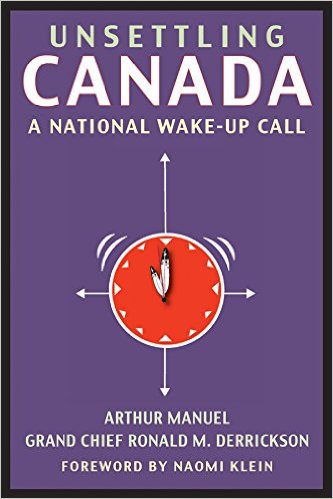
Arthur Manuel is an First Nations rights activist in Canada. He attended law school, served for four terms as chief in his community, and has fought for aboriginal rights for several decades. Unsettling Canada discusses the history of his activism and the movements he has been involved in, from sit-ins in the 1970s to Idle No More in recent years. It’s clear from the book that Manuel is deeply skeptical of organised First Nations representation in Canada, such as the Assembly of First Nations, and believes real change comes from the grassroots, where he has worked for many years as an organiser. Manuel argues (convincingly) that the key to the welfare of First Nations people in Canada is the recognition of land title and other treaty rights. The federal and provincial governments have gone to great lengths to stonewall and prevent recognition of sovereignty or land for First Nations and continue to try to extinguish treaty rights using one-sided legal processes despite the fact that courts have made it clear that the government’s treatment is unacceptable. Manuel capably makes the case that the situation of First Nations in Canada will not improve appreciably for the long-term until the rights of aboriginal people are fully recognised.

